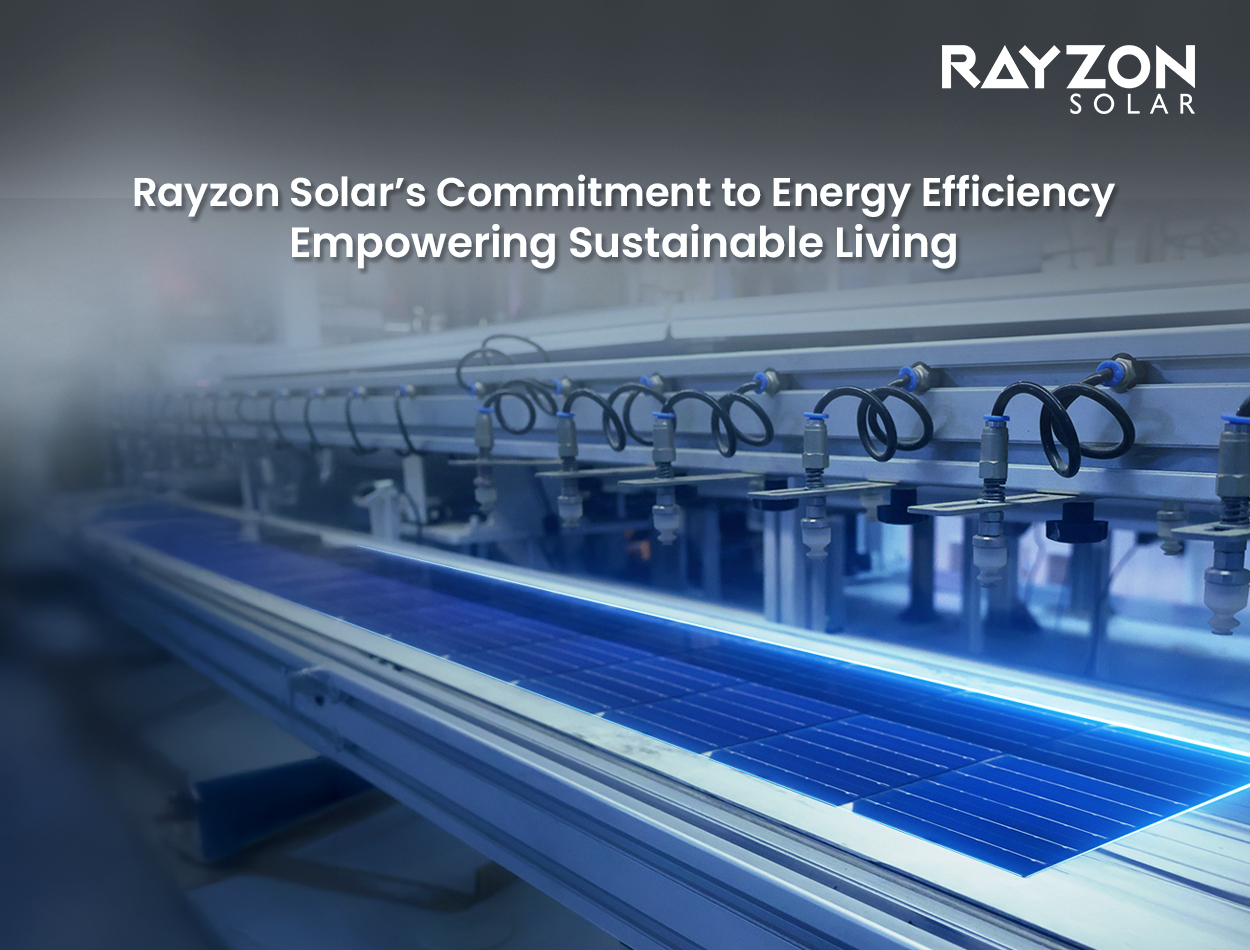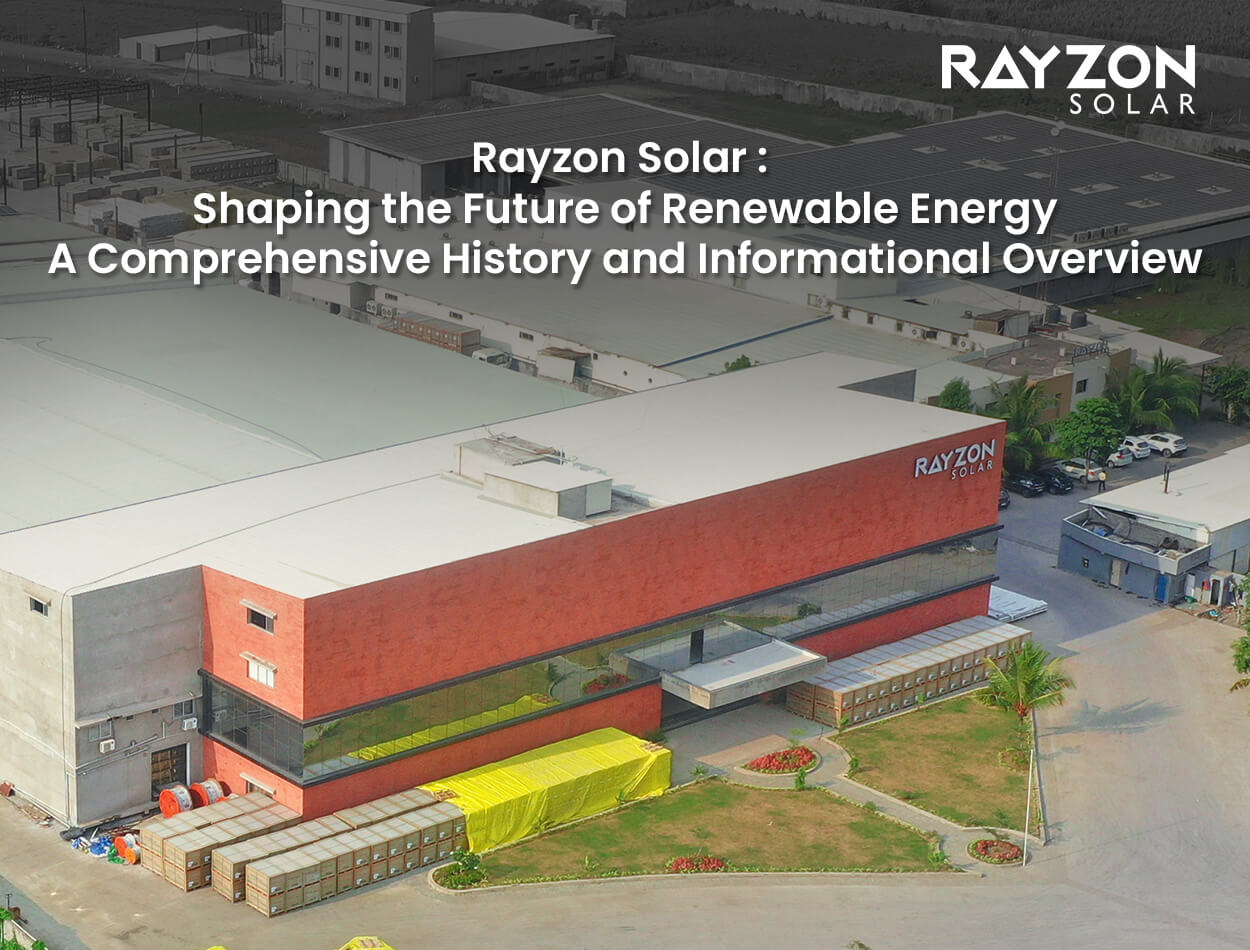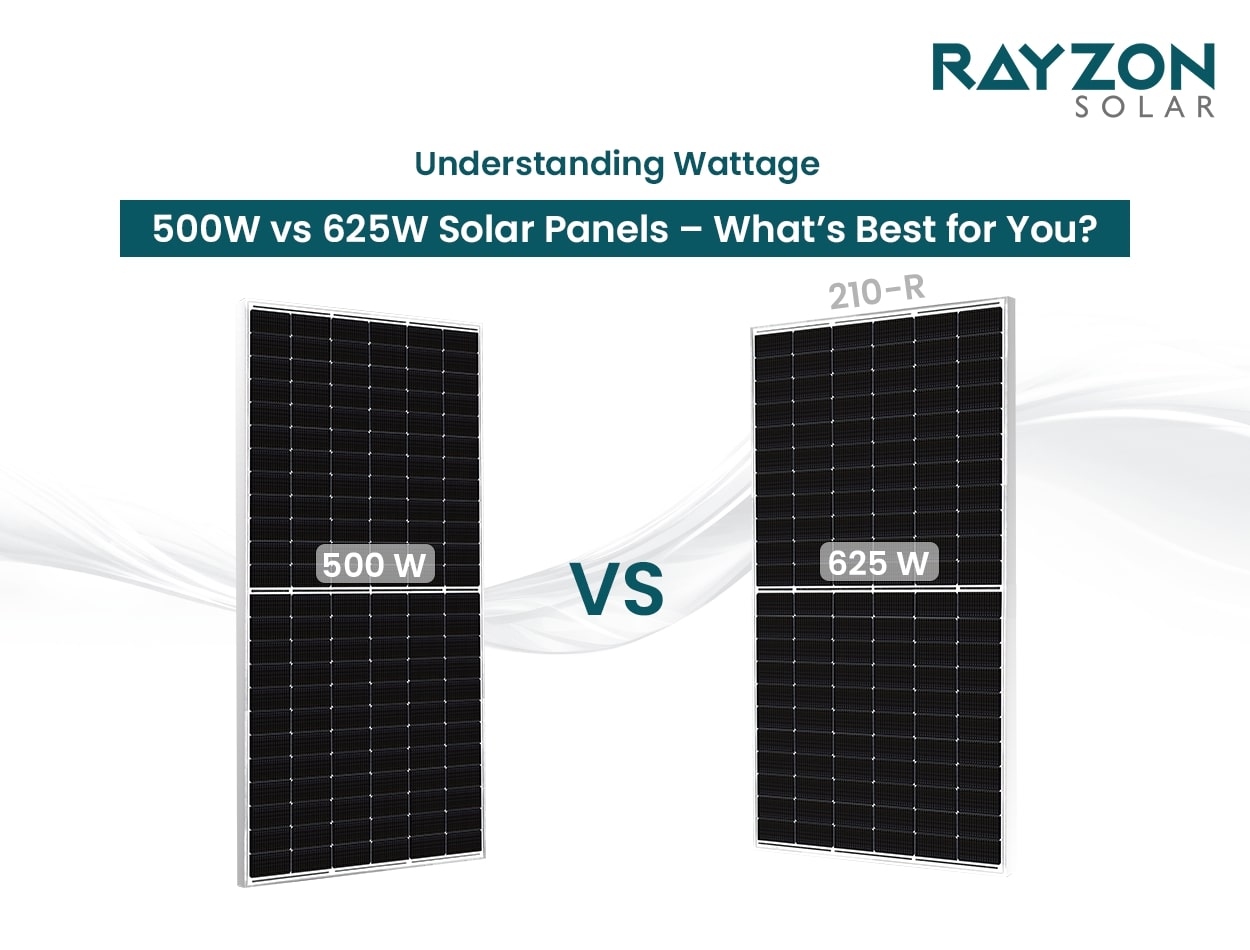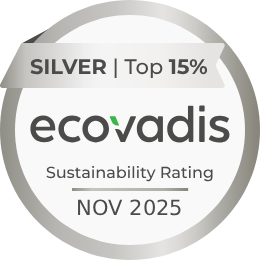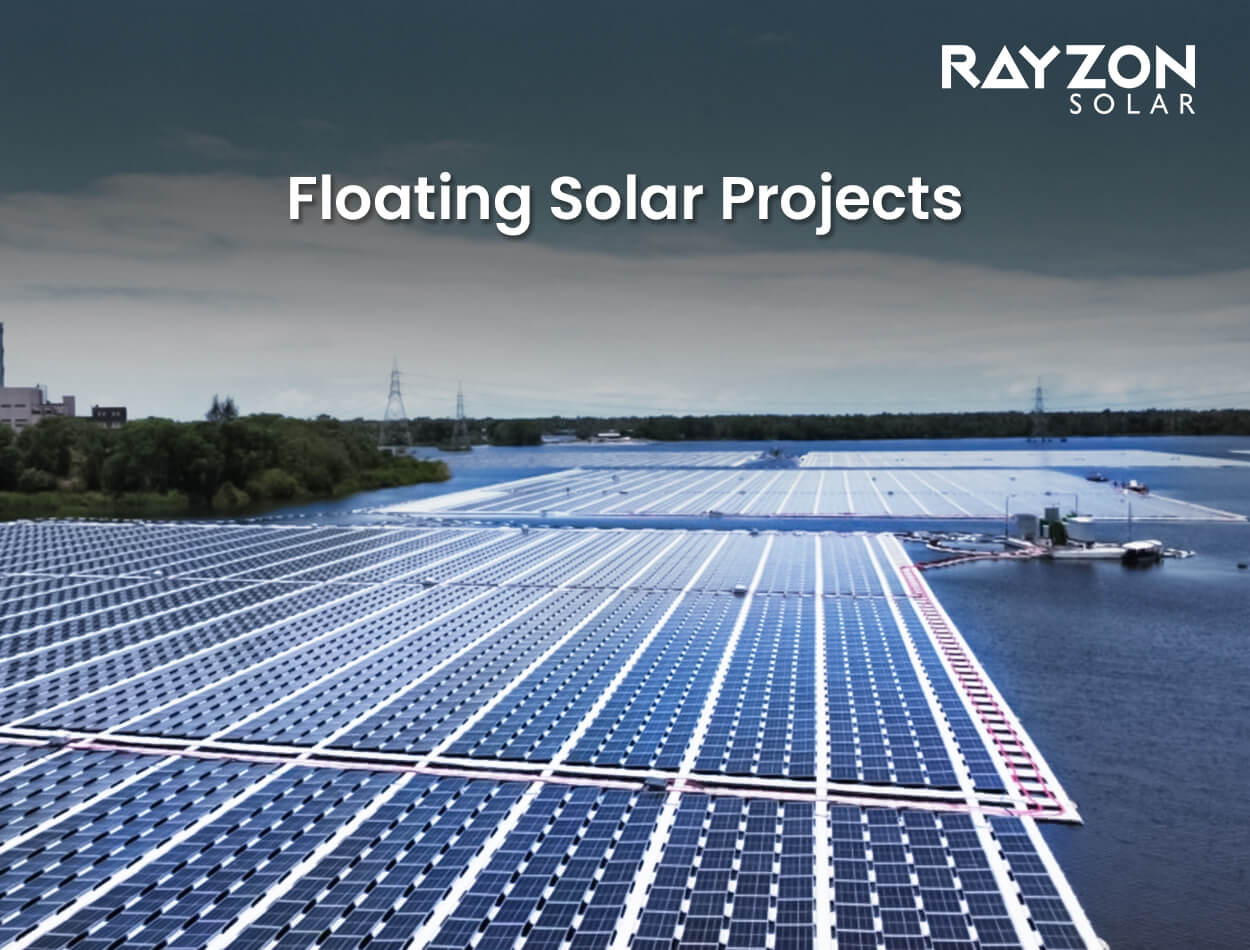
Floating Solar Projects: Expanding Solar Energy to New Frontiers
As the demand for renewable energy grows, floating solar farms are becoming a smart solution to meet these needs. These floating solar power plants are placed on water bodies like lakes, reservoirs and ponds making good use of space. By doing this, they save valuable land and increase energy generation. This new solar technology is changing how we think about solar power and helping us move towards a cleaner, greener future.
While Rayzon Solar, one of India’s top solar panel manufacturers, focuses on making high-efficiency solar panels, their panels can also be used in floating solar systems. Rayzon Solar's panels are known for being strong and high-performing, making them a reliable choice for different kinds of solar installations, including floating solar projects.
What Are Floating Solar Farms?
Floating solar farms (also known as floating photovoltaic (PV) systems) involve placing solar panels on floating platforms above water bodies. These systems are designed to harness the sun's energy without occupying valuable land, making them ideal for areas with limited space for traditional ground-mounted solar farms. By utilizing otherwise unused water surfaces, floating solar farms are addressing the dual challenge of increasing energy production while minimizing the environmental footprint.
To learn more about how this innovative technology works, check out our detailed article on Photovoltaic (PV) Technology.
How Floating Solar Panels Work
The basic mechanism behind floating solar energy systems is similar to traditional solar panels but with added benefits. Floating solar panels are placed on pontoons, which keep them above water. These floating PV systems generate electricity from sunlight just like land-based panels, but the surrounding water cools the panels, increasing their efficiency by up to 10%.
Pontoons:
Pontoons are floating structures that are strong enough to hold solar panels and stay on water. They are usually made from a type of plastic called HDPE (High-Density Polyethylene), which does not rust and can withstand sunlight without getting damaged.
The installation process involves:
- Anchoring the solar panels on floating platforms.
- Connecting them to the energy grid.
- Managing the effects of water movement and weather conditions.
One of the main reasons floating solar panels are gaining popularity is their ability to optimize energy generation while conserving land.
Advantages of Floating Solar Farms Over Traditional Solar Farms
Floating solar farms have several advantages over traditional solar farms, including saving land space and reducing water evaporation. They also benefit from cooler temperatures, which can increase the efficiency of solar panels.
1. Land Conservation:
One of the most significant benefits of floating solar farms is their ability to save land. Land use is a critical issue for many countries, and by utilizing water bodies, floating solar power plants free up land for agriculture, housing, or conservation.
2. Higher Energy Efficiency:
Thanks to the cooling effect of water, floating solar energy systems operate at higher efficiency compared to ground-mounted panels. The cooling factor reduces heat build-up, which can otherwise decrease the performance of traditional solar panels.
3. Reduced Water Evaporation:
An additional benefit of floating solar installations is their ability to reduce water evaporation in reservoirs and lakes, making them a suitable option for water conservation efforts in deficiency-prone areas.
4. Environmental Impact:
Floating solar farms also help reduce the environmental footprint of solar energy projects. By covering parts of the water’s surface, they can reduce algae growth and maintain water quality, contributing to ecosystem sustainability.
Key Locations for Floating Solar Farms: Expanding Globally
Countries around the world are increasingly turning to floating solar farms to expand their renewable energy capacity. Major projects are being built on reservoirs, lakes and even ocean surfaces. For example, countries like China, Japan, and India are leading the way in floating solar energy technology, with plans to develop large-scale floating solar projects on water bodies.
Notable Examples:
- Japan’s Yamakura Dam features one of the world’s largest floating solar farms, generating over 13.7 megawatts of clean energy.
- In India, the state of Kerala has introduced floating solar power plants to support its renewable energy targets.
- China is constructing vast floating PV systems on old mining lakes to repurpose land while boosting energy production.
Cost of Floating Solar Energy Systems
While floating solar energy systems are more expensive to install than traditional land-based systems, their long-term benefits, such as reduced land costs and increased energy output, make them a cost-effective option. The cost of floating solar energy systems has been steadily declining due to advances in technology, economies of scale, and government incentives aimed at promoting renewable energy adoption.
Some factors influencing the cost include:
- The size of the solar array.
- The type of water body used.
- Anchoring and mooring costs.
However, experts predict that as demand for floating solar energy grows, the costs will continue to decrease, making them more accessible for both large-scale and smaller projects.
Challenges and Future Potential of Floating Solar Power
Despite their numerous benefits, floating solar farms face some challenges, including:
- Higher installation and maintenance costs compared to traditional solar farm installations.
- Potential environmental impacts on aquatic ecosystems.
- Technical difficulties in maintaining stability on water surfaces.
However, with ongoing research and development, these challenges are being addressed. The future of floating solar power technology looks bright, with advancements in materials and design expected to reduce costs and increase efficiency.
Innovations on the Horizon
1. Hybrid Solar Energy Systems:
Combining floating solar panels with hydropower dams or wind turbines for continuous power generation.
2. Floating Solar Installations for Small Islands:
Islands with limited land can now leverage floating solar farms to meet their energy needs without compromising their ecosystems.
3. Smart Energy Grids:
Integration of floating solar farms into smart energy grids to optimize energy distribution and minimize waste.
Environmental Impact of Floating Solar Farms
The environmental impact of floating solar farms is generally positive. By providing a renewable energy source with minimal carbon emissions, these systems are helping countries meet their climate goals. Additionally, their ability to cover large water surfaces can reduce evaporation rates and improve water quality in some regions.
However, as with any large-scale project, monitoring and mitigating potential ecological disruptions is essential. Proper planning and environmental assessments can ensure that floating solar farms contribute positively to energy production and environmental sustainability.
Conclusion: The Advantages of Floating Solar Farms for a Sustainable Future
Floating solar farms are an exciting new way to produce renewable energy. They help generate more energy without using extra land, making them a smart choice for problems faced by traditional solar farms. Floating solar farms can increase energy efficiency and reduce water evaporation, which makes them a great option for countries wanting to boost their renewable energy projects.
As floating solar technology keeps improving, these systems will play an important role in global clean energy efforts. Whether they can stay cool, save land, or be installed on lakes, reservoirs, and oceans, floating solar energy is changing how we view sustainable energy solutions.
Call to Action: Power Your Future with Rayzon Solar
Are you ready to explore the power of floating solar energy? Contact Rayzon Solar today and learn how we can help you harness the benefits of floating solar farms for your energy needs. Visit our contact to start your journey toward a cleaner, greener future.
